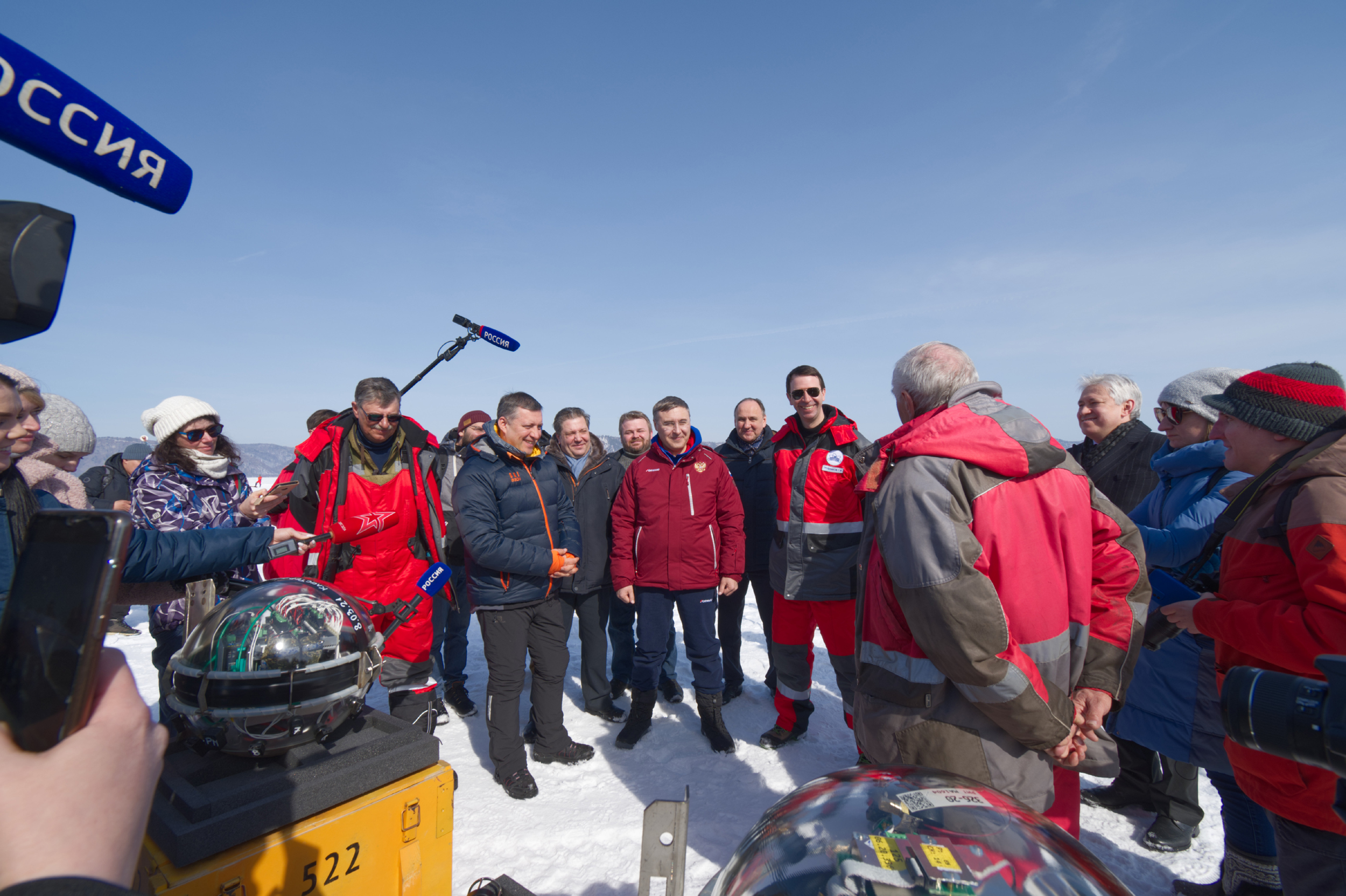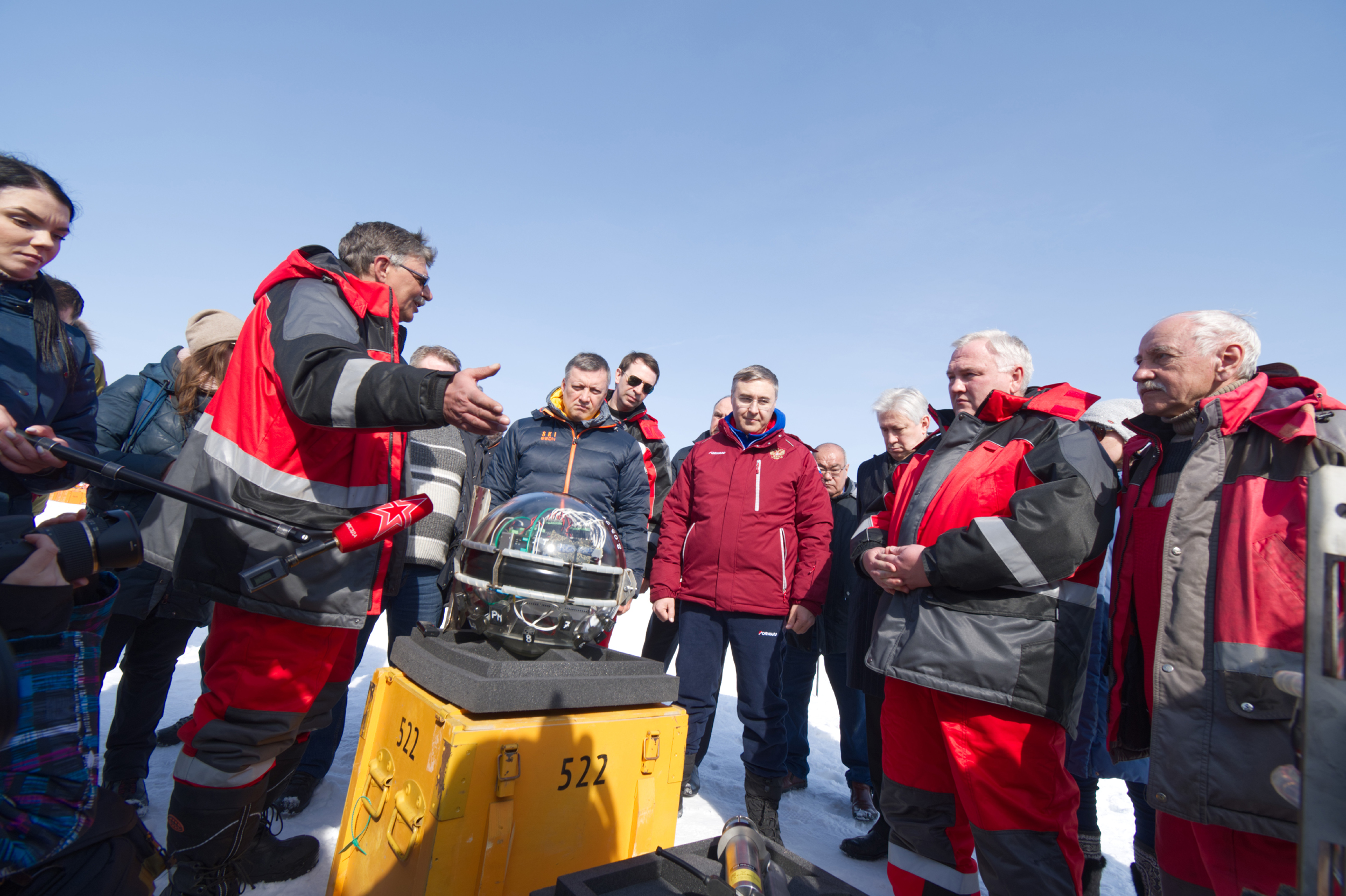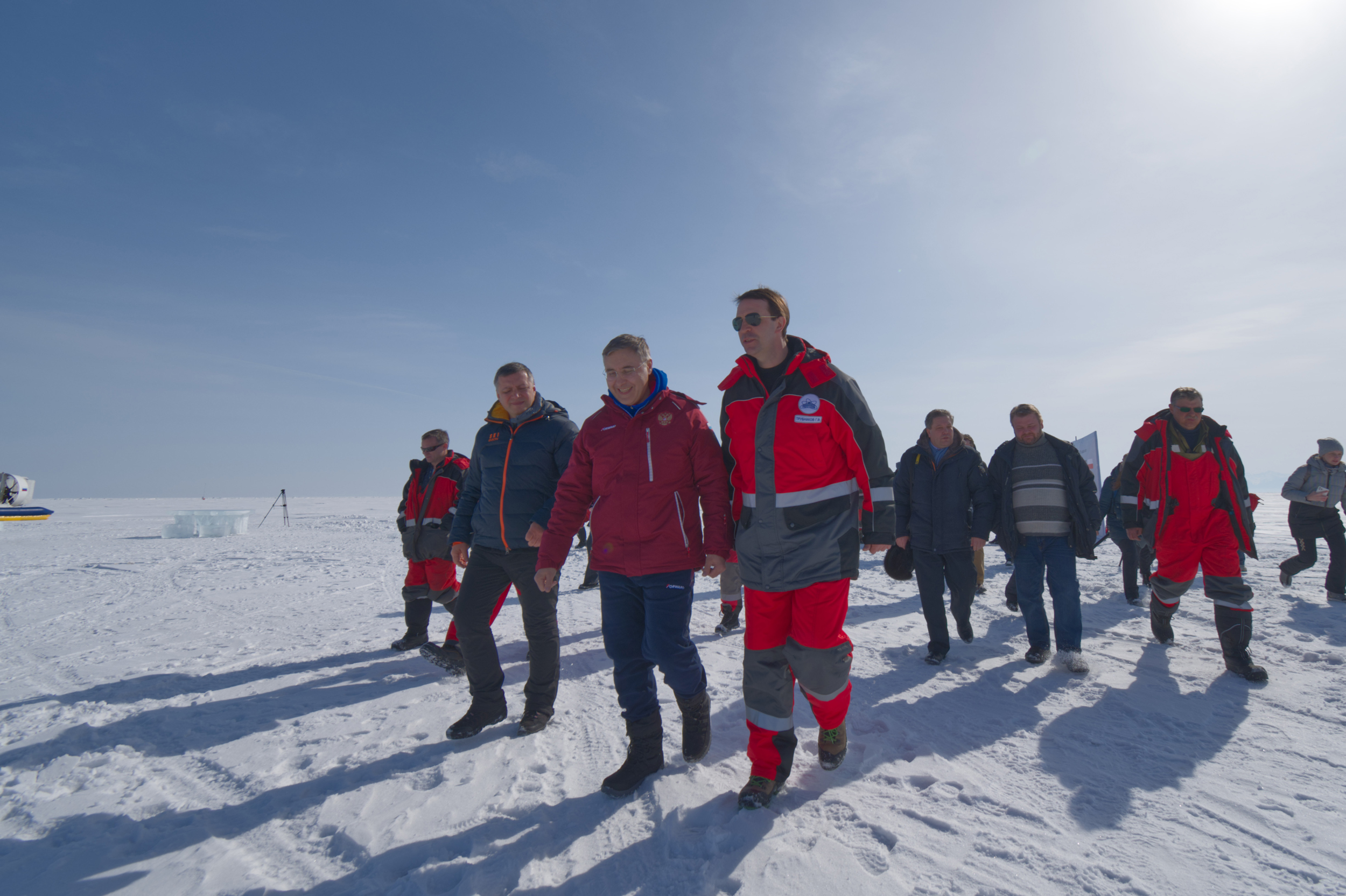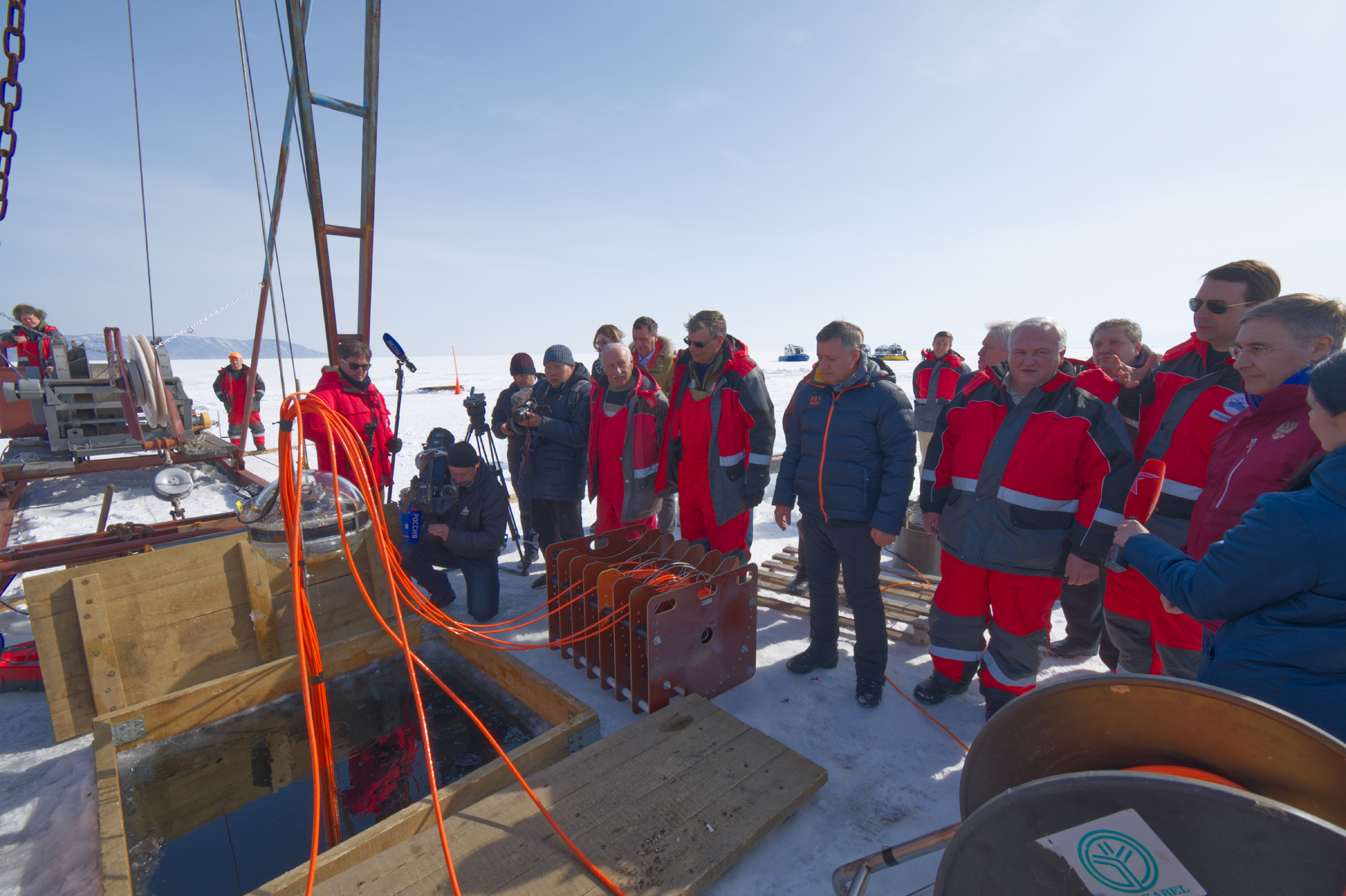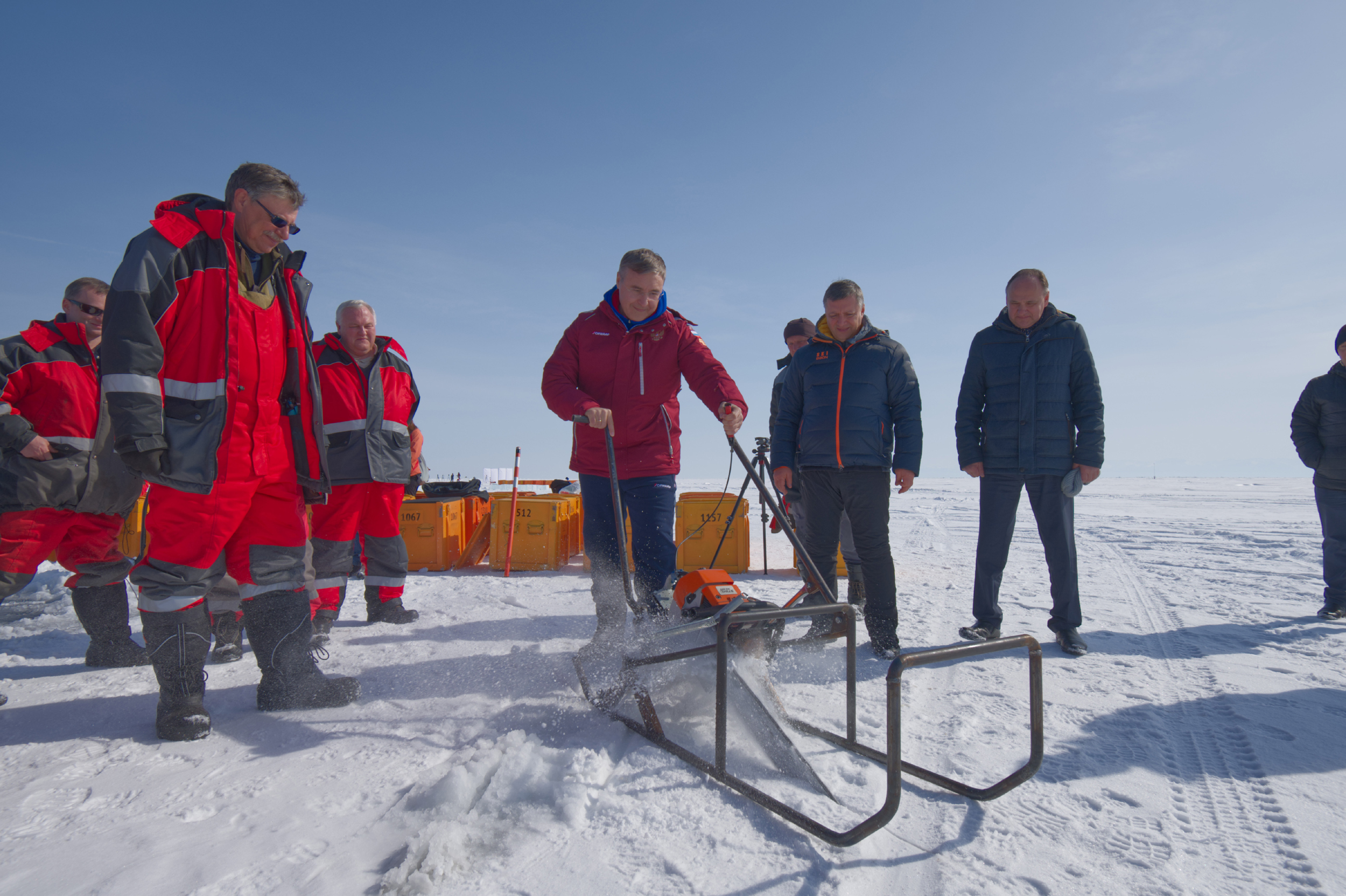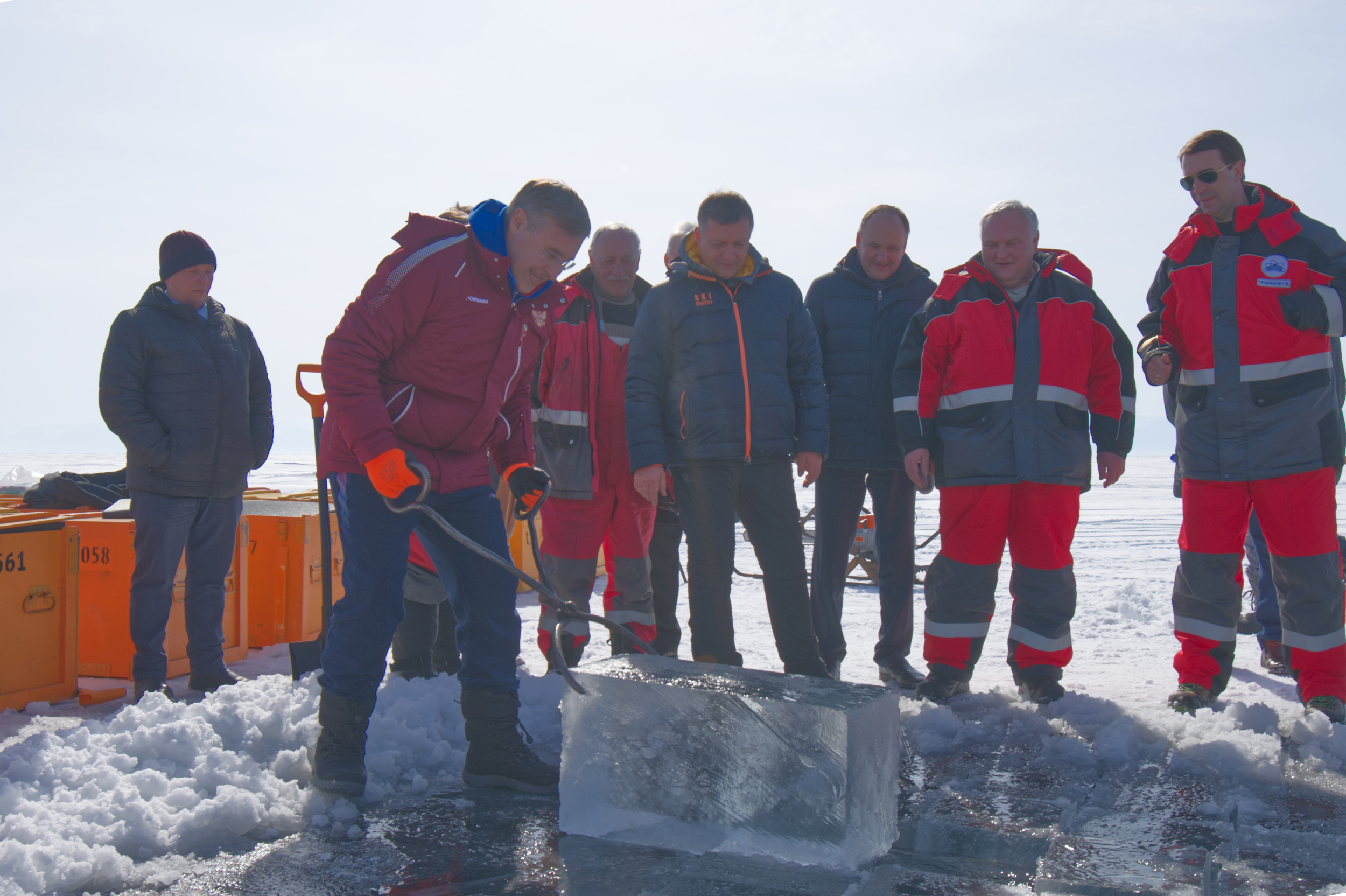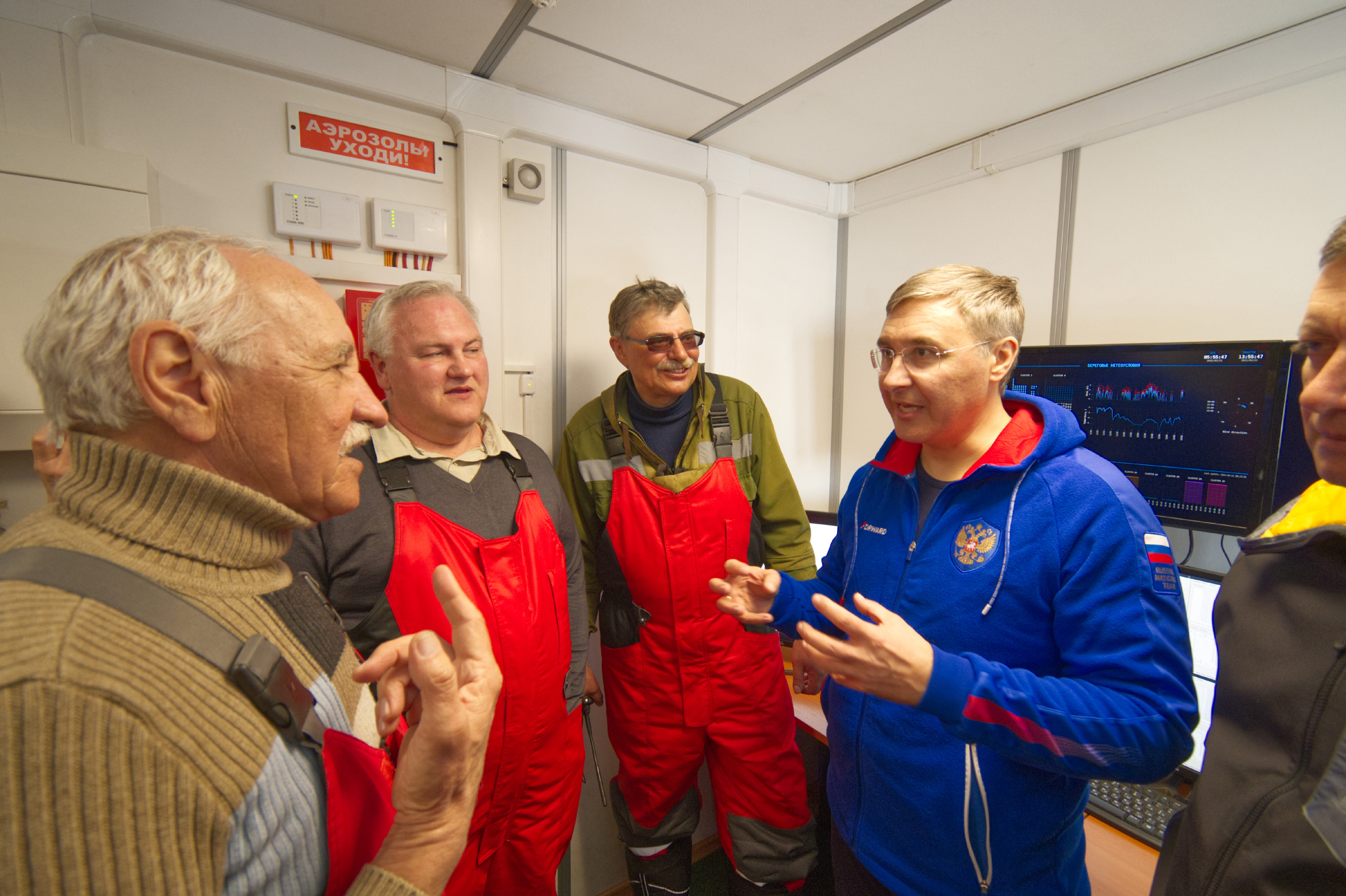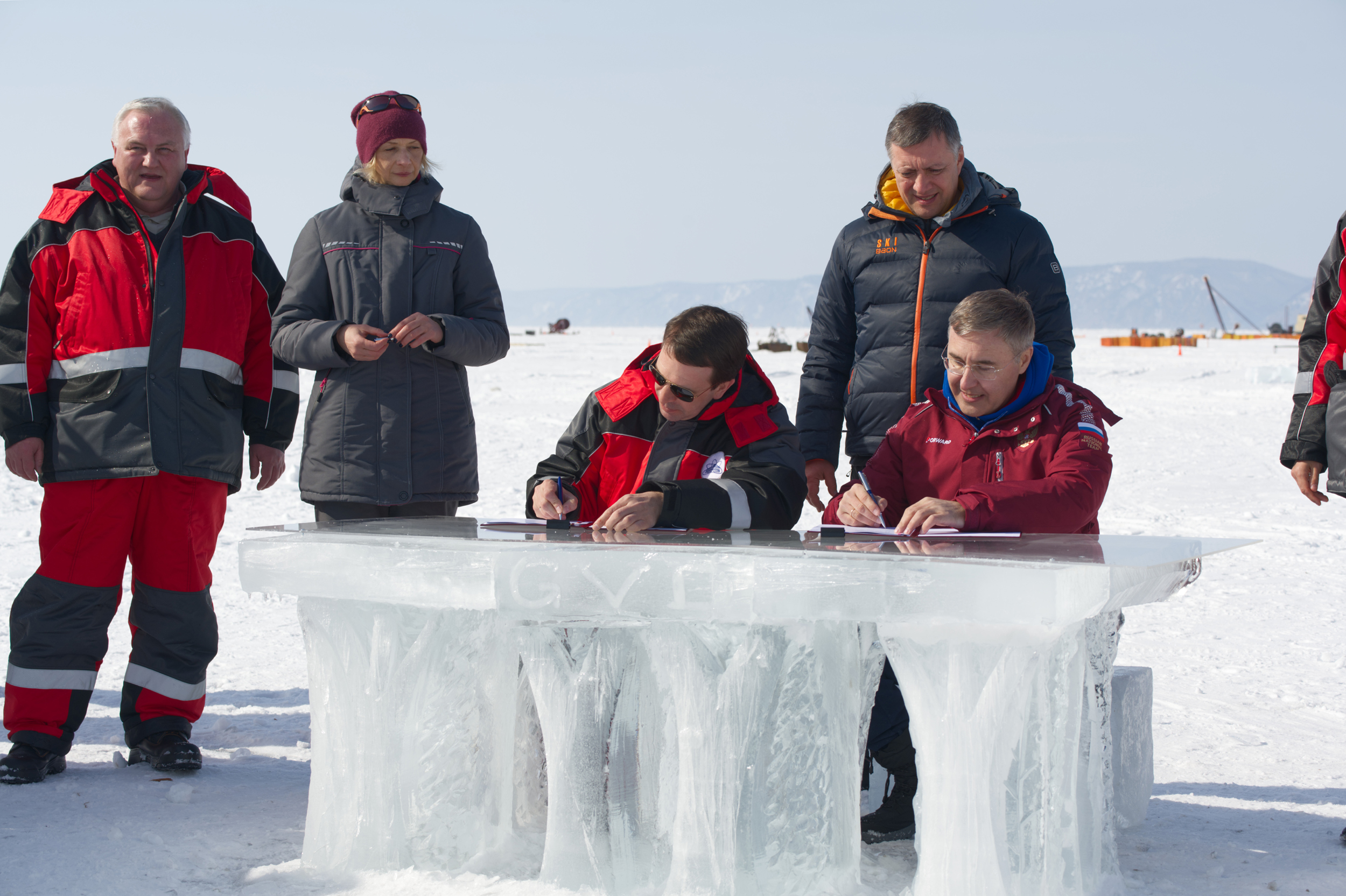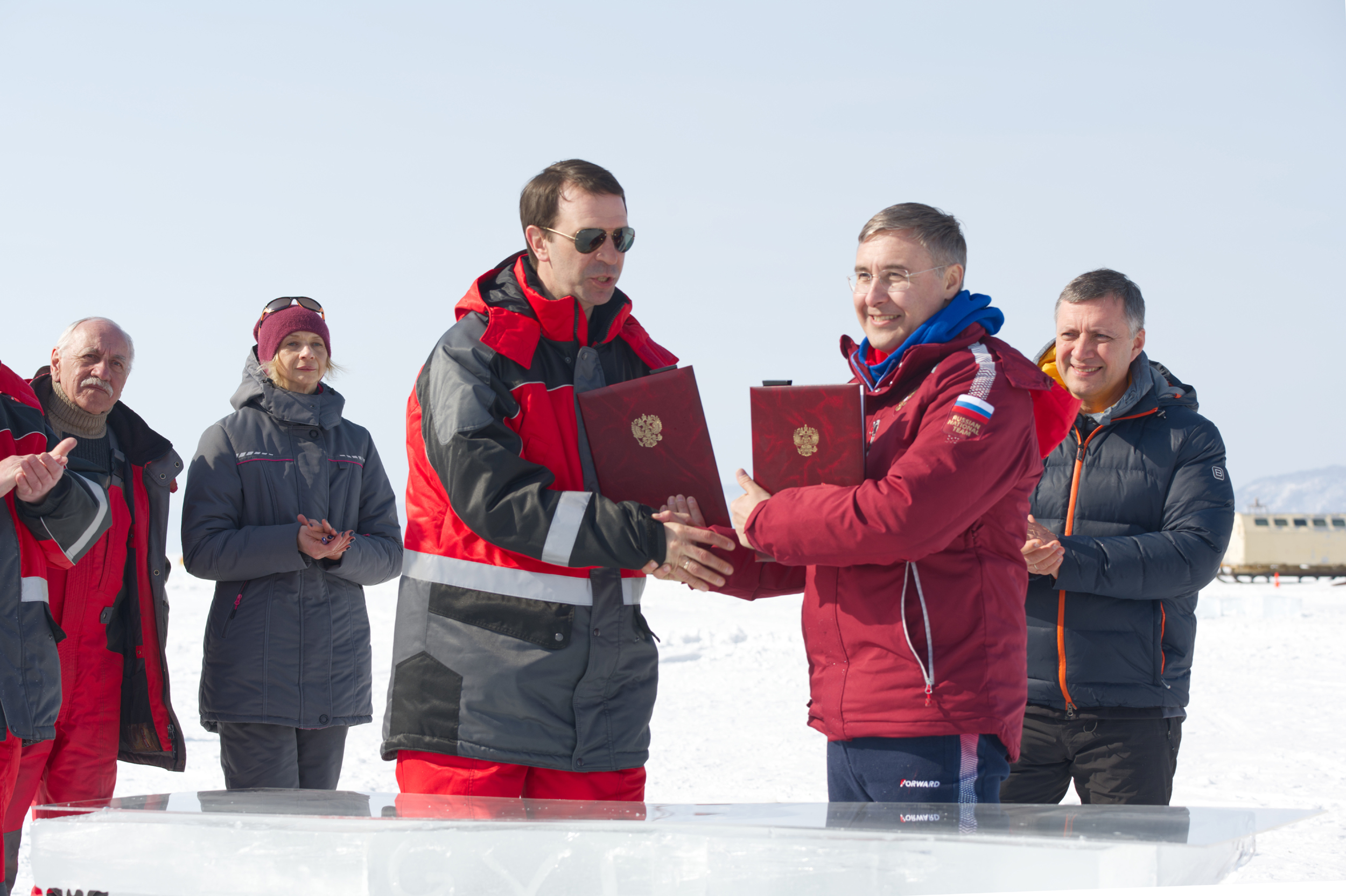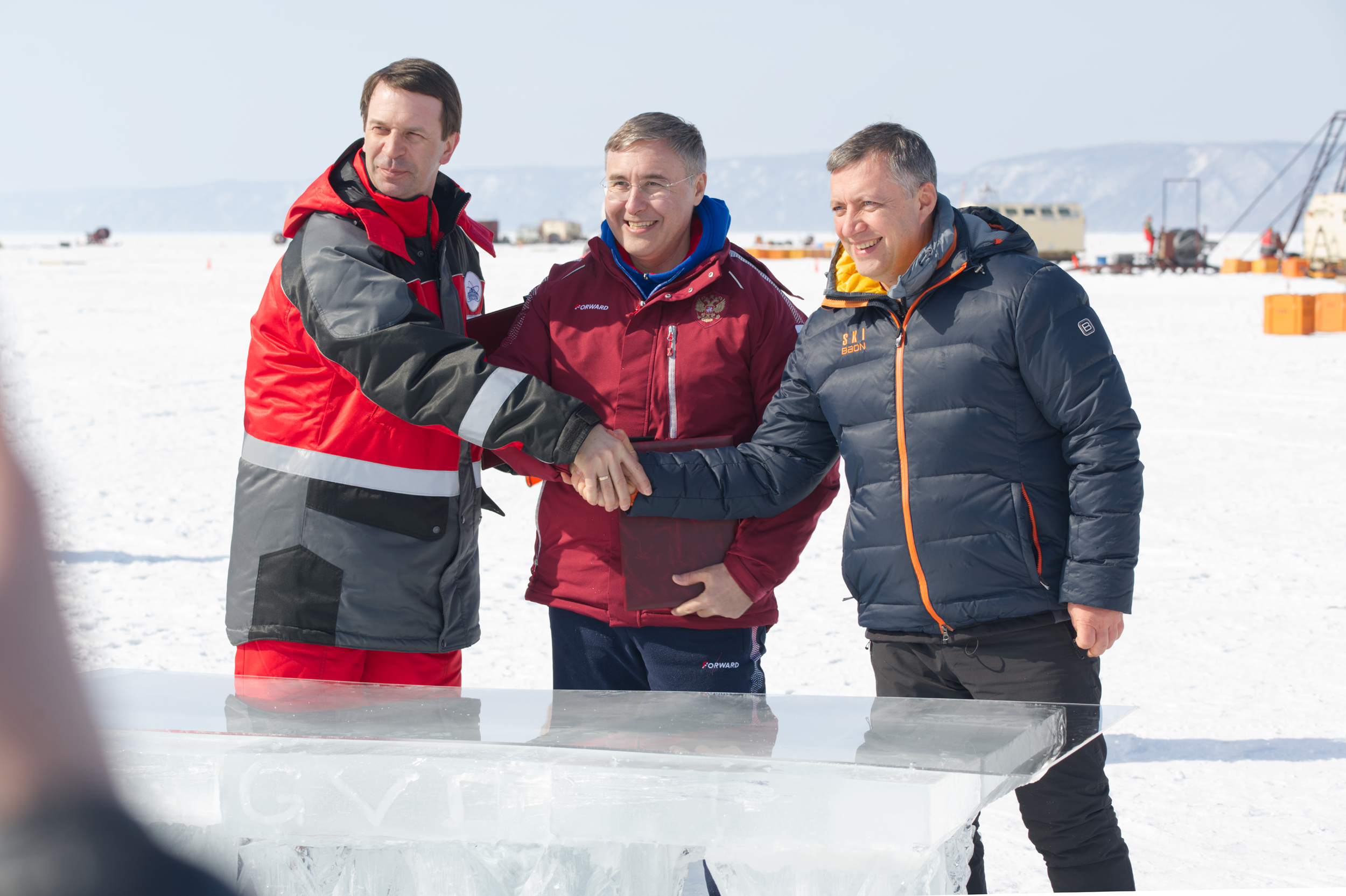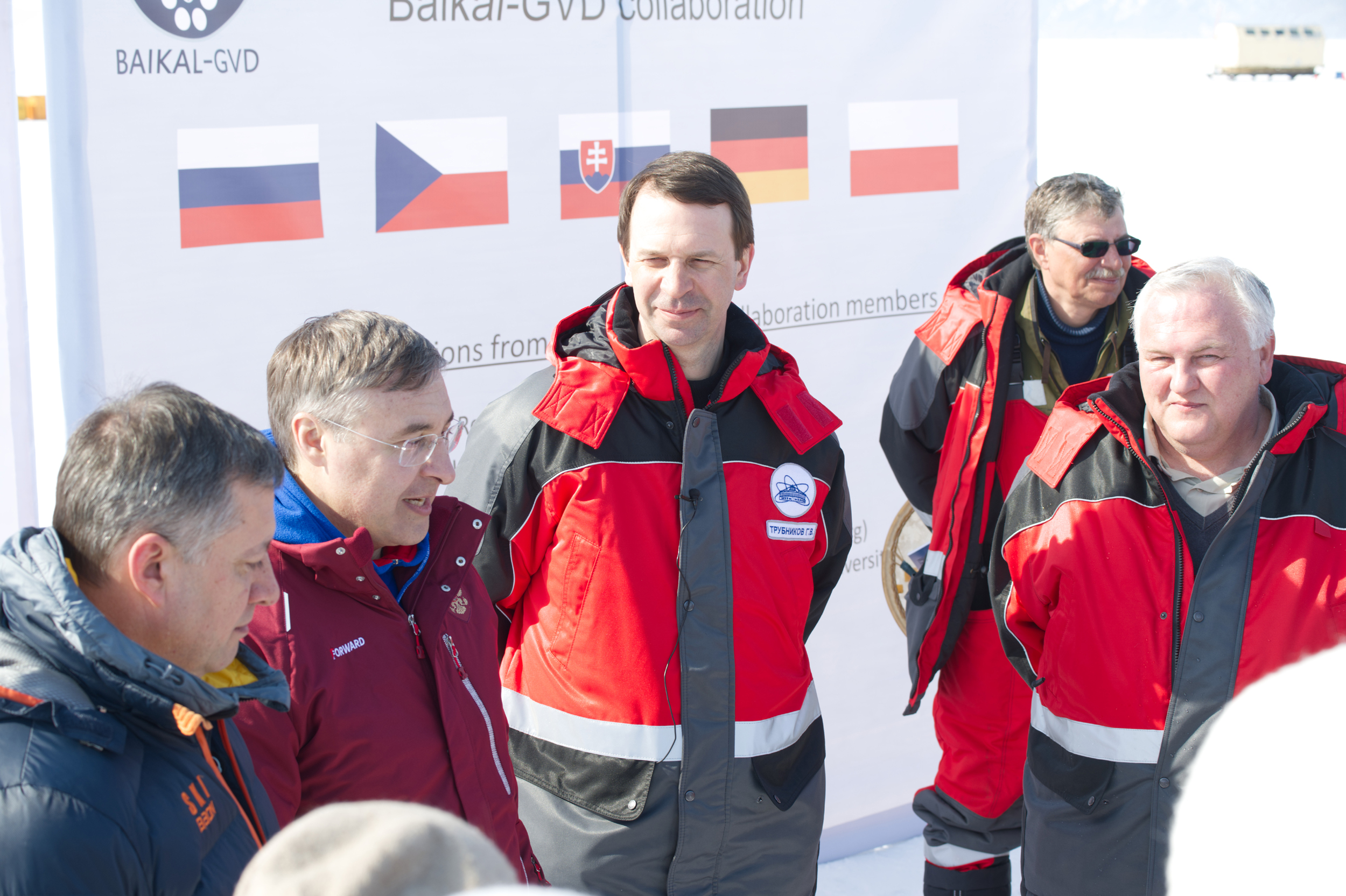Baikal-GVD launched!
Media, 13 March 2021
On 13 March 2021, a ceremonial launch of the largest in the Northern hemisphere deep underwater neutrino telescope Baikal-GVD was held. This significant for the Joint Institute and world science event has become one of the key events of the current Year of Science and Technology in Russia. The unique neutrino telescope Baikal-GVD will help detect sources of high-energy neutrinos, study the evolution of galaxies and the Universe, as well as solve the key task of forming the world’s neutrino network.
Minister of Science and Higher Education of the Russian Federation Valery Falkov together with JINR Director RAS Academician Grigory Trubnikov, Director of INR RAS Maxim Libanov, and ISU Rector Alexander Schmidt launched the facility. Governor of the Irkutsk region Igor Kobzev also took part in the ceremony.
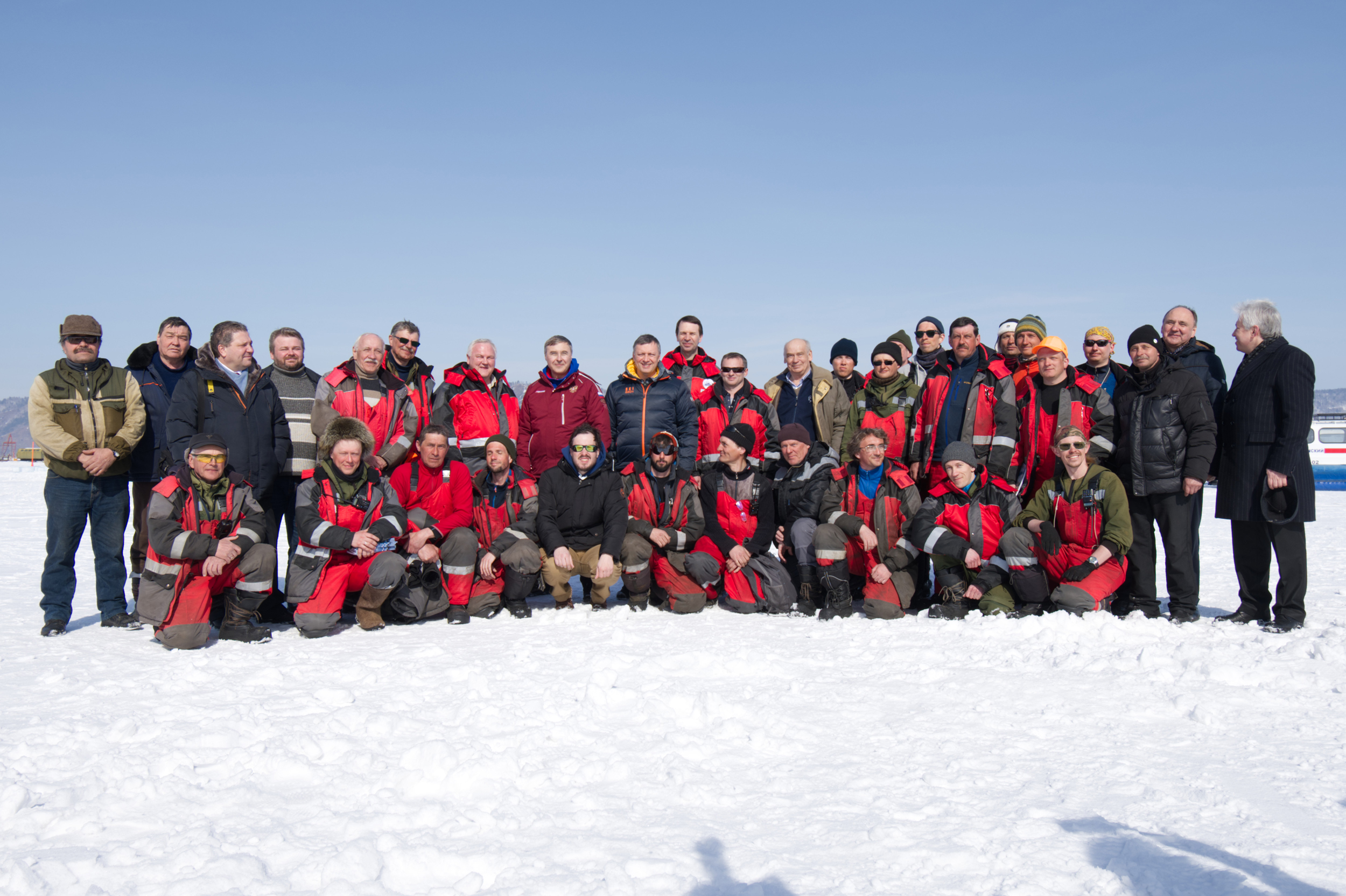 Photos by Bair Shaibonov / JINR
Photos by Bair Shaibonov / JINR
The telescope is the result of intense work of an international team of scientists from Russia, the Czech Republic, Slovakia, Germany, and Poland with the leading role of the Ministry of Science and Higher Education of Russia, the Joint Institute for Nuclear Research, and the Russian Academy of Sciences.
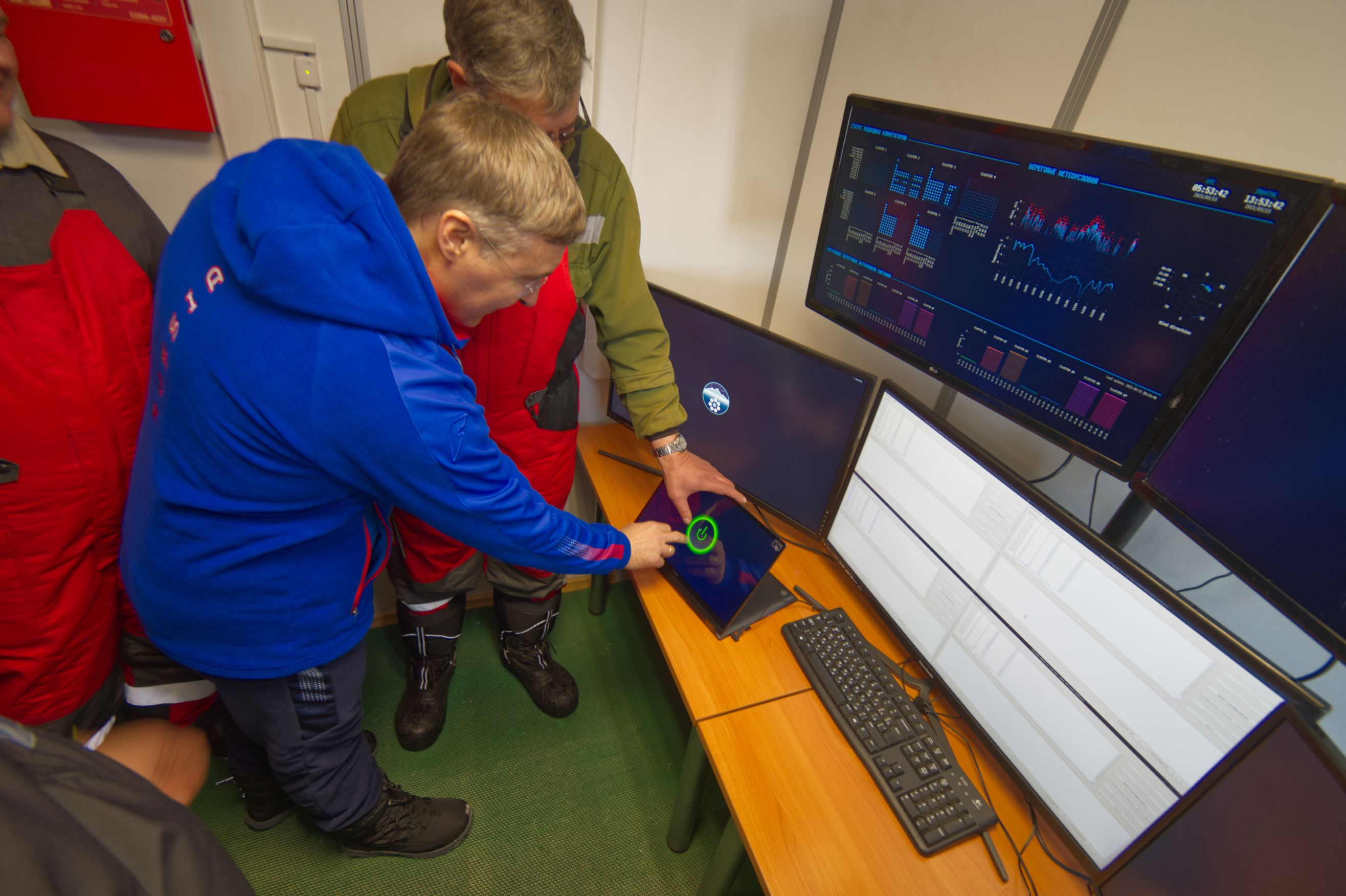 Minister of Science and Higher Education of Russia Valery Falkov Valery Falkov is pushing a button to launch the Baikal-GVD neutrino telescope. Photo by Bair Shaibonov / JINR
Minister of Science and Higher Education of Russia Valery Falkov Valery Falkov is pushing a button to launch the Baikal-GVD neutrino telescope. Photo by Bair Shaibonov / JINR
Minister of Science and Higher Education of Russia Valery Falkov noted the importance of such large-scale projects for attracting young people to the R&D field, “Science is one of the drivers for the development of territories. The problem in many regions is that young people choose large agglomerations, cities, and metropolitan universities as places of residence. Such projects as that we are launching today in the Irkutsk region are necessary to stimulate young people to develop at home regions. Young researchers will have an opportunity to take part in scientific studies and engineering-technological works at the advanced level, make discoveries, study thus increasing the scientific and technical potential of their region and our country. I am grateful to our colleagues from the largest institutes, from the Joint Institute for Nuclear Research, the Institute for Nuclear Research RAS who have been actively working on lake Baikal for several years.
Director of the Joint Institute for Nuclear Research Academician of RAS Grigory Trubnikov in his turn called the launch of the telescope yet another triumph of Russian scientists and international scientific cooperation. The telescope will allow “recording far much better neutrino statistics than it has been previously possible.”
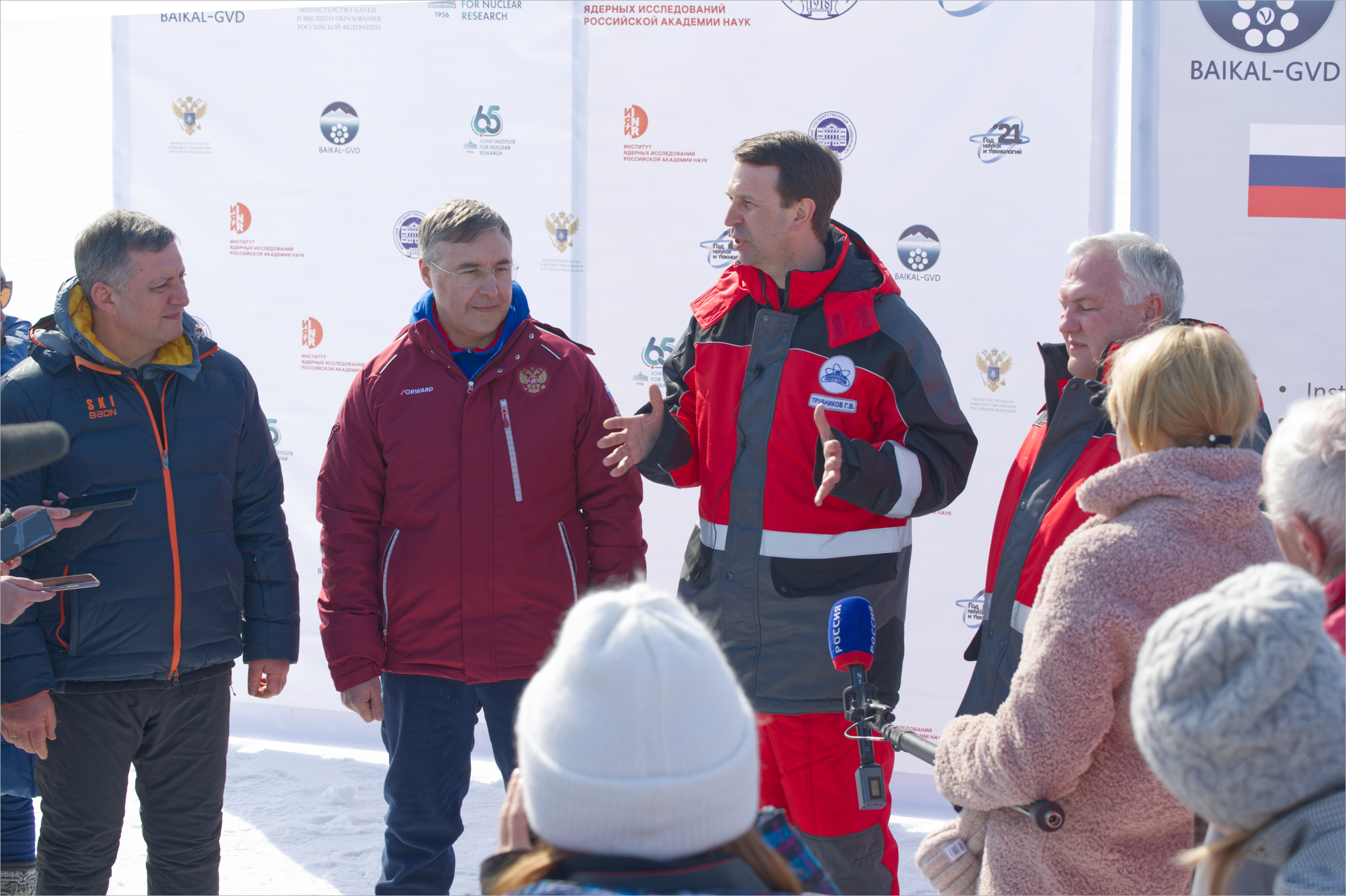 Photos by Bair Shaibonov / JINR
Photos by Bair Shaibonov / JINR
Moreover, on 13 March, the Ministry of Science and Higher Education of Russia and the Joint Institute for Nuclear Research signed a Memorandum of understanding on the ice of the Baikal deep underwater neutrino telescope camp for the development of the Baikal deep underwater neutrino telescope Baikal-GVD. The Memorandum focuses on the further development of the Baikal-GVD project, as well as experimental studies in the fields of neutrino high-energy astrophysics, neutrino astronomy, and neutrino physics. By signing the document, the Ministry and JINR confirmed the importance of uniting efforts for the support of existing and the creation of new large-scale physical experimental facilities. The Memorandum provides every possible assistance of the parties to the implementation of the project “Baikal deep underwater neutrino telescope Baikal-GVD”, increase of effective volume of Baikal-GVD up to a cubic kilometre, and its development, including international research. The document includes also experimental studies in the fields of high-energy neutrino astrophysics, neutrino astronomy, and neutrino physics. The importance of strengthening international scientific and technical cooperation in this scientific realm is also highlighted in the Memorandum.
Commenting on the launch of the JINR flagship project in the fields of neutrino physics, Academician Grigory Trubnikov said, in particular, “The launch of the Baikal deep underwater neutrino telescope in the year of the 65th anniversary of the Joint Institute for Nuclear Research marked a milestone in the development of the scientific programme of our international organization. It is a real, tangible contribution made by scientists from the JINR Member States and, above all, the Russian scientific community to the development of high fundamental science. That is why this event is a good way to thank everyone whose hands and intellect have made this project possible. And of course, it is a significant motivating sign for young and outstanding scientists from all over the world to actively develop neutrino physics leading it to new scientific victories, which constantly convert into technological breakthroughs thus ensuring comfortable human life.”
RF Ministry of Science and Higher Education about launch of Baikal-GVD telescope
N+1: Neutrino telescope on lake Baikal officially opened
RIA Novosti about Baikal-GVD launch
TASS Nauka about neutrino telescope brought into operation
Comment by Academician G. V. Trubnikov for RIA Novosti about launch of the telescope
Interfax: neutrino telescope studying history of Universe launched on lake Baikal
The Daily Mail Online about the deployment of the Baikal-GVD
The New York Times about the Baikal-GVD project
